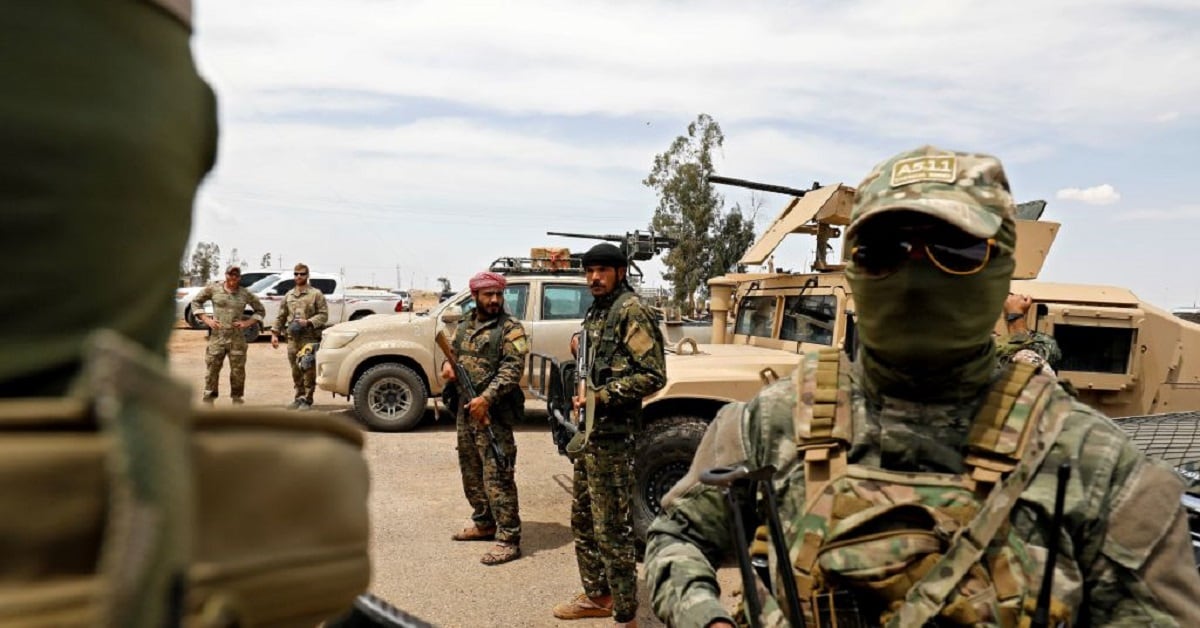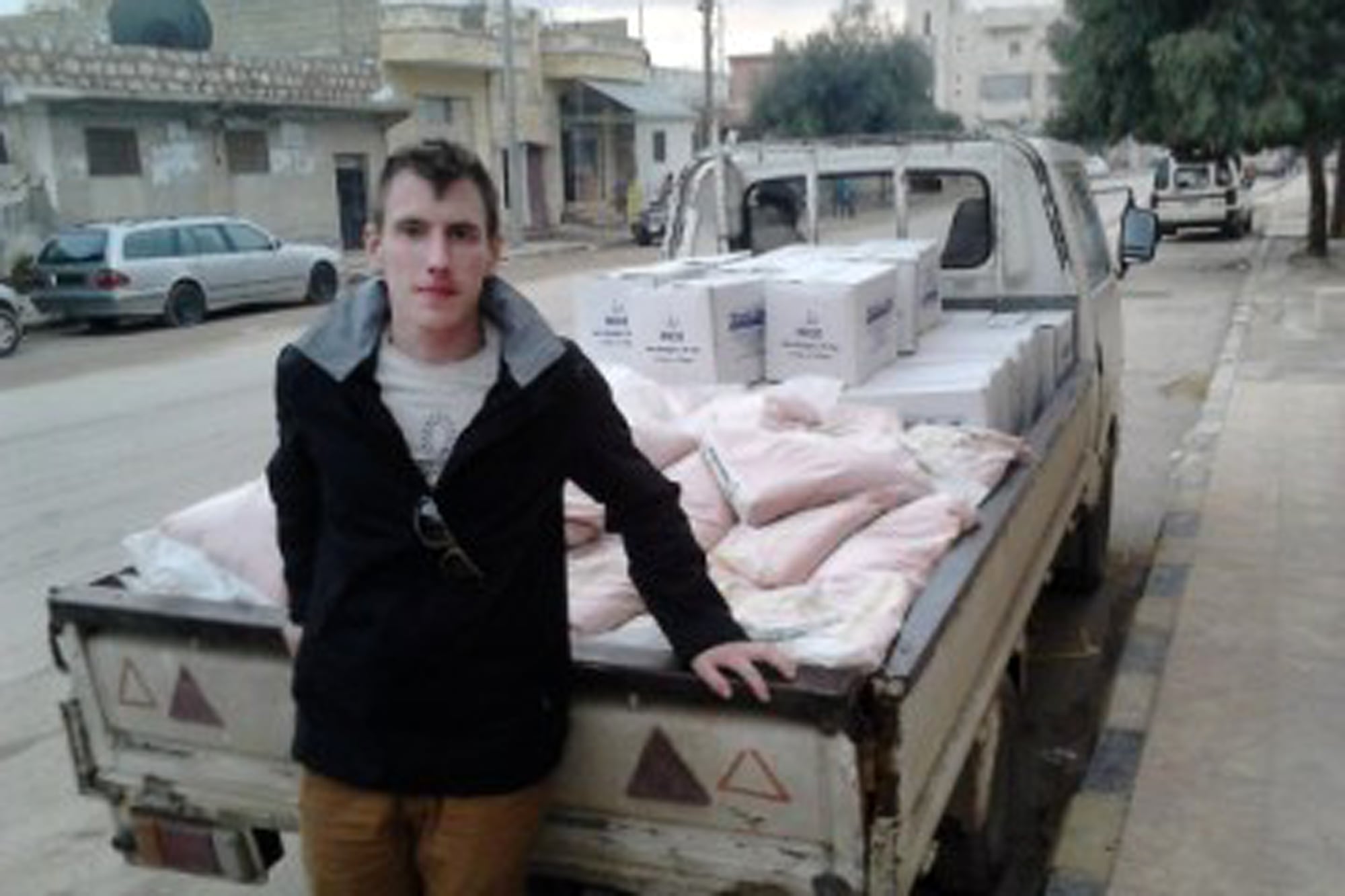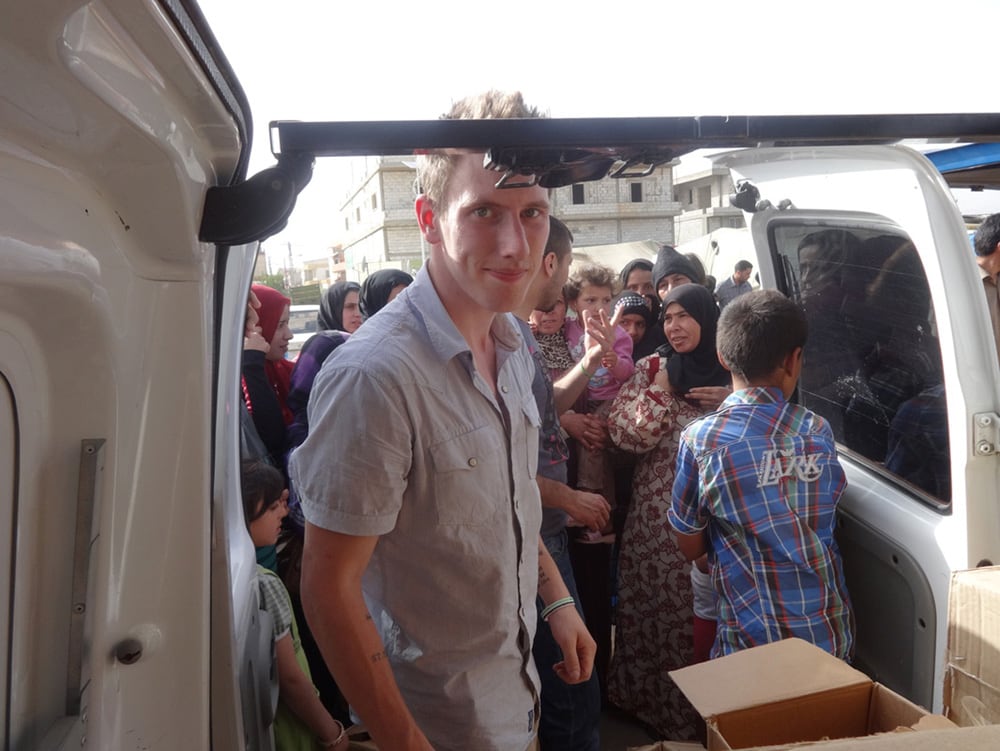An Islamic State militant who murdered several Western aid workers, including a former Army Ranger, has been killed in an airstrike, according to U.S. military officials.
Coalition forces conducted “precision strikes” against senior ISIS member Abu al Umarayn and several other ISIS fighters Sunday in Syria’s Badiyah Desert, according to Inherent Resolve, the multinational coalition to defeat ISIS.
“Al Umarayn had given indications of posing an imminent threat to Coalition Forces, and he was involved in the killing of American Citizen and former U.S. Army Ranger Peter Kassig,” Army Col. Sean Ryan, a spokesman for the coalition, told Army Times. “He has been linked to and directly involved with executing several other prisoners as a senior ISIS member.”
“Coalition airstrikes continue to disrupt ISIS command and control on the battlefield as we remove key figures from their ranks,” Ryan added.
Kassig, also known as Abdul-Rahman Kassig, was beheaded in November 2014. Kassig began his conversion to Islam before his capture and did not do so under duress, according a video his parents released while he was still being held captive by ISIS.
RELATED

Kassig was 26 at the time of his death. He enlisted in the Army in 2006 and served with the 75th Ranger Regiment. He deployed to Iraq from April until July 2007 before being medically discharged as a private first class that September.
Kassig then attended college at Butler University, majoring in political science, his parents said on their Facebook page. He visited Lebanon over spring break in 2012 and eventually left school to form an aid organization called Special Emergency Response and Assistance, or SERA, which provided Syrian refugees with food, cooking utensils, clothing and medical supplies.
A certified EMT, Kassig was known to provide care to wounded Syrians and teach trauma skills to others before he was captured in eastern Syria in October 2013.
Kassig’s parents, Paula and Ed, issued numerous appeals for their son’s release. But in mid-November 2014, ISIS released a video showing that Kassig was beheaded. The White House confirmed his death several days later.

In an interview published by TIME magazine, Kassig described his experience treating Syrians in the civil war that has raged across the country since 2011.
“The truth is sometimes I really think I would like to do something else, but at the end of the day this work is really the only thing that I have found that gives my life both meaning and direction,” he said. “In five years, I certainly hope to have seen SERA grow into an international relief organization capable of helping hundreds of thousands of people around the world. I would also like to be able to say that I was able to give something back to everyone who helped along the way.”
Kassig’s parents authored an op-ed in The New York Times along with the families of other executed Americans earlier this year. In it, they argued that two captured Islamic State fighters, Alexanda Kotey and El Shafee Elsheikh, should be brought to the United States “to face our justice system.”
Kotey and Elsheikh were accused of helping to capture and torture Kassig, as well as other Westerners.
“We want the world to know that we agree with the longstanding British government position that it would be a mistake to send killers like these to the military prison at Guantánamo Bay, or to seek the death penalty in court. Either path would make them martyrs in the eyes of their fanatic, misled comrades in arms — the worst outcome," the parents wrote. "Instead, they should be tried in our fair and open legal system, or in a court of international justice, and then spend the rest of their lives in prison. That is what our children would have wanted.”
Straggling fighters of ISIS' failed caliphate continue to be captured by U.S.-backed Syrian Democratic Forces and eliminated by airstrikes.
The terror group has lost nearly all the territory it once controlled in Iraq and Syria.
The U.S.-led coalition has cornered the remaining ISIS holdouts in its territory east of the Syrian deconfliction line to a small area near the Iraq-Syria border, known as the Hajin Pocket.
There, ISIS militants have put up a brutal fight. U.S. officials say that ISIS' intense resistance is due to the reality that they have no where else to flee and recognize that the Hajin Pocket will be their last stand.
Kyle Rempfer was an editor and reporter who has covered combat operations, criminal cases, foreign military assistance and training accidents. Before entering journalism, Kyle served in U.S. Air Force Special Tactics and deployed in 2014 to Paktika Province, Afghanistan, and Baghdad, Iraq.





